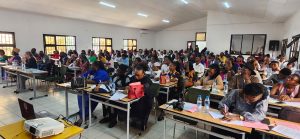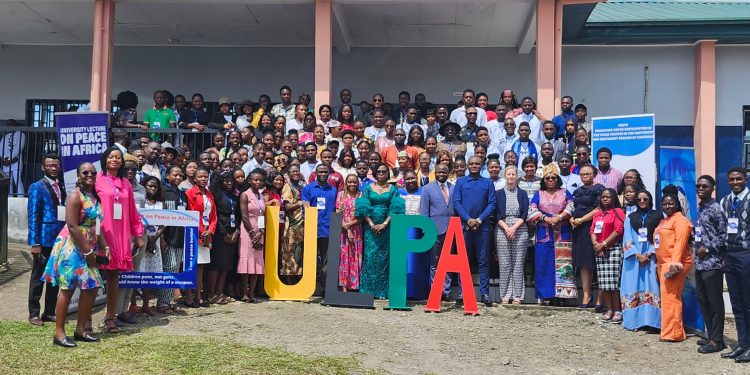The University Lecture for Peace in Africa held on the theme, “Youth in Peace Processes and the Prevention of the Recruitment and Use of Children in Armed Conflicts”. The theme resonated deeply with participants eager to forge actionable pathways toward a safer future.
The event began with Mr. Tanyitiku E. Bayee, Director General of NASLA, who passionately called for equipping youth with the skills to advocate for peace. His words set a hopeful tone for the discussions that followed, highlighting the urgent need for community engagement.
Keynote speaker Dr. Catherine Baillie Abidi, Assistant Professor, Department of Child and Youth Study, Mount Saint Vincent University emphasized that “youth are not merely victims; they are powerful agents of change.” This perspective was echoed throughout various panel discussions.
The session on the Role of Youth in Preventing Recruitment into Armed Conflicts brought to light innovative grassroots initiatives led by young activists, showcasing their potential to deter violence and exploitation.
Participant feedback reflected this sentiment, with Etombe Ananastasia, a plant science student, stating, “When I registered for the lecture, I had little knowledge on how youth can contribute to peace, but now I know kids are central.”
Another impactful discussion focused on Government and Policy Interventions to Prevent Child Recruitment, where experts outlined the essential frameworks needed to protect vulnerable youth.
The urgency of early warning systems and proactive measures was underscored, with Brenda Wanjiru from the Dallaire Institute emphasizing that “early warning, early action reduces risks.”
This theme resonated with Bryan Motiti, a Conflict Resolution student, who noted that the workshop provided him with vital insights into effective advocacy, moving him away from a “fight or flight” mentality.
The psychological toll of conflict on children was a central theme in the panel addressing the Psychological Impact of Armed Conflict on Children and Youth.
Dr. Doreen Mbain, Southwest Regional Coordinator of Street Child Cameroon, highlighted the pressing need for mental health support, stating, “War does not start with guns; it ends with them,” advocating for comprehensive community support systems that address emotional wounds.
As the lecture concluded, participants engaged in an open reflection on the Vancouver Principles, reinforcing their commitment to advocacy and community action.

The energy in the room was palpable, with attendees eager to implement what they had learned. Morine Oben, a social anthropology student, shared her experience: “Thanks to key panel topics, I was able to clarify all the doubts I have about engaging the community in peace processes.”
The ULPA 2024 not only illuminated the challenges faced by young people but also ignited a collective movement toward a more peaceful Cameroon. It served as a powerful reminder that empowering youth and fostering community resilience are essential steps in building a safer future.
It was a We Build initiative in collaboration with LOYOC, and funded by Canadian Affairs.








